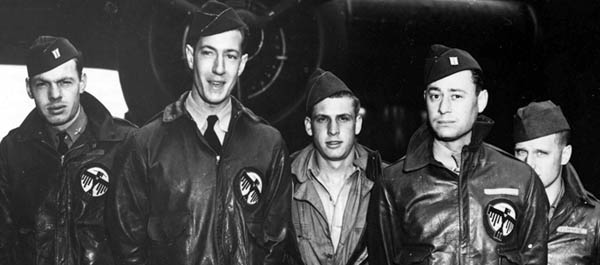
The Japanese execution of several Doolittle Raiders (along with the Bataan Death March and other atrocities that came to light early in the war) helped ensure that Americans would reserve a special enmity for their Far East foes. Yet the Doolittle Raid also resulted in a striking tale of humanity and hope that transcends the misery and hatreds of war.
See MHQ’s story on
Doolittle’s Raid
Payback for Pearl
Sergeant Jacob DeShazer from Salem, Oregon, was the bombardier of plane No. 16, two of whose crew members were executed. Interned at various Japanese POW camps after his capture, he managed in May 1944 to obtain a Bible. What he read, particularly passages suggesting he offer forgiveness to the Japanese who had imprisoned him, turned him into a devout Christian. “Suddenly I discovered that God had given me new spiritual eyes,” he later wrote. Experiencing a kind of Pauline conversion toward the “guards who had starved and beaten me and my companions so cruelly,” DeShazer said, “I found my bitter hatred for them changed to loving.” He tried treating a hitherto brutal guard with compassion and friendliness. The guard responded; the beatings ceased. DeShazer later concluded this had probably saved his life, and the lives of other prisoners. Repatriated in 1945, DeShazer became an evangelist missionary and returned to Japan in 1948 with his wife and young children. He would remain there for 30 years. Shortly after his arrival, he met Captain Mitsuo Fuchida, the bomber pilot who led the attack on Pearl Harbor. He had read DeShazer’s book, I Was a Prisoner of Japan (which sold 30 million copies worldwide). Deeply influenced by DeShazer, Fuchida too became a Christian missionary. These former enemies paired up to preach the reconciliation of wartime foes in Japanese centers, and frequently toured the United States, lecturing together. Fuchida became an American citizen in 1966. He died in 1976; his friend DeShazer died only three years ago at 95 in his home state of Oregon. 




